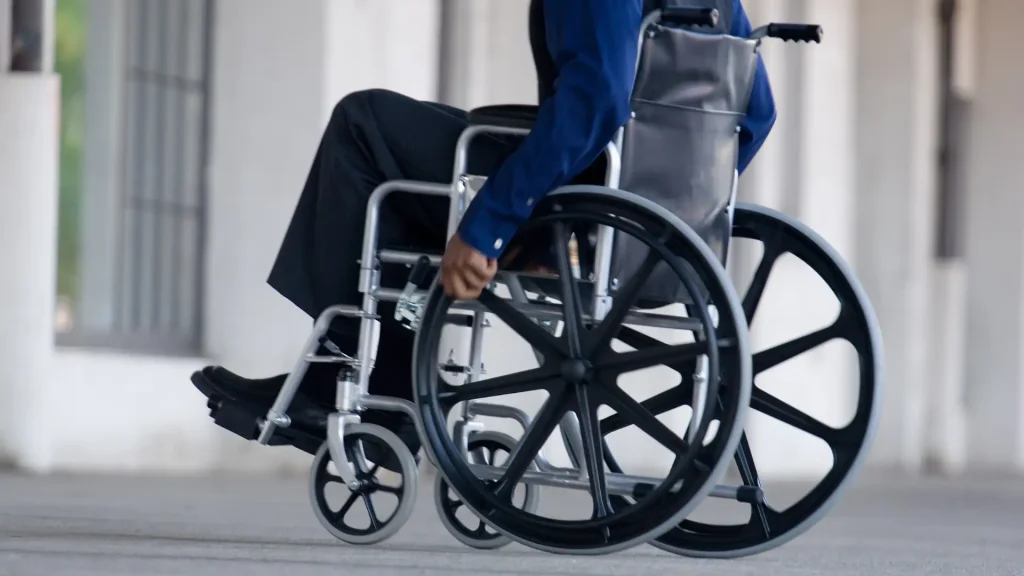Posted on Thursday, May 1st, 2025 at 9:00 am
 Many people are surprised to learn they need to repay some of their long-term disability benefits after qualifying for SSDI. This often happens because LTD insurance policies typically contain offset provisions, which are clauses that reduce your LTD payments by your SSDI amount. If there’s overlap with your SSDI benefits or you receive back pay, an insurer might demand that you reimburse them. Every policy is different, and what applies in one case may not apply in yours. That’s why it’s vital to speak with a lawyer who understands long-term disability law and can help protect your interests. Questions like “Do you have to pay back long-term disability?” often arise, especially if you receive repayments for other benefits like Social Security.
Many people are surprised to learn they need to repay some of their long-term disability benefits after qualifying for SSDI. This often happens because LTD insurance policies typically contain offset provisions, which are clauses that reduce your LTD payments by your SSDI amount. If there’s overlap with your SSDI benefits or you receive back pay, an insurer might demand that you reimburse them. Every policy is different, and what applies in one case may not apply in yours. That’s why it’s vital to speak with a lawyer who understands long-term disability law and can help protect your interests. Questions like “Do you have to pay back long-term disability?” often arise, especially if you receive repayments for other benefits like Social Security.
Do You Have to Pay Back Long-Term Disability Benefits?
You must pay back LTD benefits if you receive Social Security Disability Insurance (SSDI) in many cases (though not all). Most LTD insurance policies include language that allows the insurer to reduce your LTD payments by the amount you receive from SSDI. This is called an “offset.” If you start receiving SSDI after your LTD benefits statute has already begun, your insurance company may ask for repayment.
However, the amount you owe depends on your specific policy. Not all plans handle offsets or repayment in the same way. Some policies reduce LTD payments until you make up for the offset, while others demand immediate reimbursement. The rules vary depending on the insurer, the policy language, and whether your SSDI benefits include help for your dependents. Furthermore, insurance companies sometimes miscalculate how much you owe for an offset and might ask for more than your policy allows. That’s why it’s crucial not to pay anything until you carefully review the insurance company’s demand.
You have the right to understand how the insurer came up with its proposed repayment amount. If your LTD insurer is asking you to pay money back, talk to a long-term disability lawyer right away. An attorney can review your policy, check the insurer’s math, and explain your options. Long-term disability attorneys are experienced in dealing with insurance companies and can help ensure you get the full benefits you’re entitled to.
How SSDI Back Pay Affects LTD Repayment
SSDI back pay is a lump sum covering the time between when your disability began and the government approved your application. Because the application process can take many months – or even years – the Social Security Administration often owes people a significant amount in retroactive payments. Back pay starts from the official date your disability began and includes any months while your SSDI application was pending.
The problem is that many people receive long-term disability (LTD) benefits while their SSDI claim is pending. Since most LTD policies reduce your benefits by the amount of SSDI you receive, the insurance company may want part of your back pay. That’s because the insurer has already paid your full benefits without factoring in what you later receive from SSDI. When the government finally approves your SSDI claim, the insurance company sees that overlap and calls it an “overpayment.”
Please read more about the claim application here: What Makes a Strong LTD Claim Application?
This is when the insurer will likely demand reimbursement. They’ll calculate the SSDI back pay and subtract it from what they believe they overpaid you. But mistakes happen. Insurance companies might miscalculate the amount or forget to exclude dependents’ benefits that aren’t subject to an offset. That can leave you with a higher bill than it should be.
Don’t rush to pay if your insurer asks for part or all of your SSDI back pay. Review your policy and speak to a disability lawyer first.
Is SSDI Worth It if It Can Reduce Your LTD Benefits?
 SSDI is often worth applying for, even if it may reduce your LTD benefits. SSDI offers a steady income stream, potential eligibility for Medicare after two years, and added financial protection if your LTD benefits end. It can also help you qualify for other public benefits, disability payments, and may provide additional support for your dependents. However, it’s crucial to think carefully before applying for SSDI due to how it can affect your LTD benefits. Speak with a disability lawyer before applying to understand how SSDI could impact your financial situation.
SSDI is often worth applying for, even if it may reduce your LTD benefits. SSDI offers a steady income stream, potential eligibility for Medicare after two years, and added financial protection if your LTD benefits end. It can also help you qualify for other public benefits, disability payments, and may provide additional support for your dependents. However, it’s crucial to think carefully before applying for SSDI due to how it can affect your LTD benefits. Speak with a disability lawyer before applying to understand how SSDI could impact your financial situation.
Contact Our Pittsburgh Long-Term Disability Lawyers for Help
Capitan Law, PLLC can help if your LTD insurer demands repayment after SSDI approval. We’ll review your policy, explain your rights, and challenge any unfair demands by your insurer. Long-term disability claims in Pennsylvania are all we do, and our team has handled cases like yours across the country. Our team is here to help you understand your rights and take the first step toward securing the necessary benefits. Let us protect your benefits and guide you every step of the way. Contact us today by calling (267) 419-7888 or reaching out online for a free consultation.